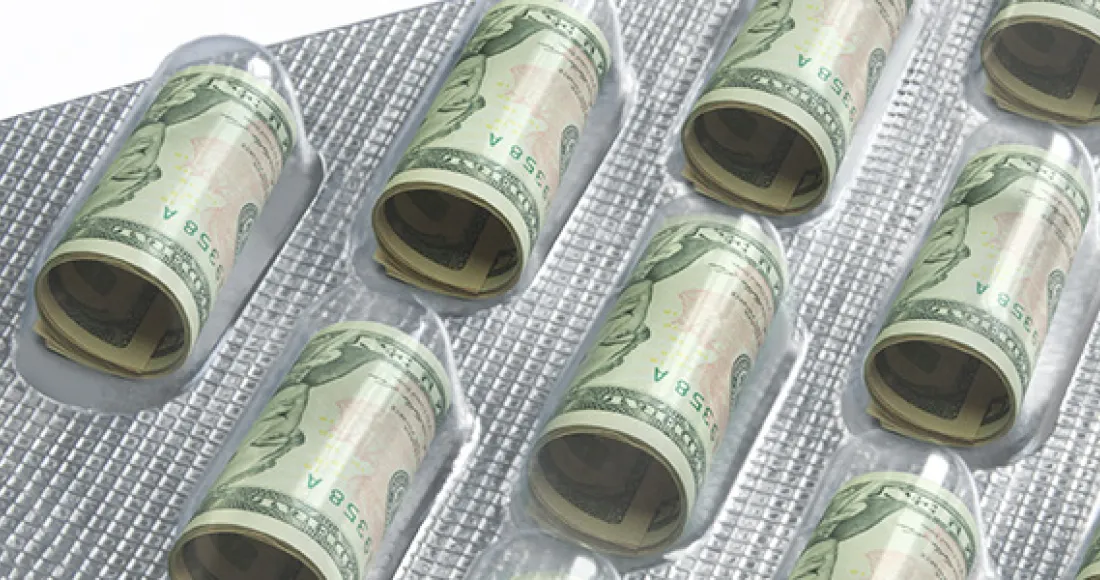
Pharmaceutical companies calculate their bottom lines to a T, but some costs don’t show up on the ledgers. Swaying doctors and dealing with the pricey litigation buying that influence sometimes incurs is one of Big Pharma’s more sinister and disregarded practices.
Many doctors receive gifts from pharmaceutical companies as encouragement to prescribe those companies’ products to patients, even when a generic equivalent or other cheaper option may be available. These gifts often blur the line between what is and isn’t legal. For instance, FiercePharma reported that Allergan recently reached a $13 million settlement with the U.S. government and 19 states because of how it tried to influence doctors to prescribe the dry eye drug Restasis.
This just goes to show that, for Big Pharma, it seems that buying influence with doctors and accepting the regulatory fallout is less of an unsavory endeavor and more of a calculated practice. Even though healthcare professionals may see tangible benefits, the fallout could be significant.
Settlements: A ‘Good Business Move’ for Big Pharma?
Allergan marketed Restasis and other eye drugs for off-label use, according to FiercePharma. Two Philadelphia ophthalmologists blew the whistle on the company under the False Claims Act, but Allergan’s tactics are just another glaring example of how big pharma views both fraud enforcement and buying doctor influence: a cost of doing business.
Allergan offered doctors a gaggle of goodies for working with them, hawking an “Allergan Access” membership program in order to increase use of its dry eye product. The massive pharmaceutical company, which raked in nearly $15 billion in 2016 alone, used its Allergan Access program to provide business advisory services like financial analysis, human resource tools, continuing education resources, and more.
The company also offered payments to doctors who attended meetings and dinners where they received more encouragement to promote Restasis and other drugs. At some of these meetings, Allergan encouraged doctors to refer to their practices as “Dry Eye Centers of Excellence,” according to the complaint.
Adding it all up, it’s easy to see the problem. When comparing how much Allergan made selling Restasis — the drug netted them $1.4 billion in 2016, according to SeekingAlpha — the $13 million settlement is like making 50 truckloads of cash, and having to give one truckload back for punishment.
Pharmaceutical companies target doctors across practices, but ophthalmologists seem particularly susceptible to gifts. In the end, they prescribe name-brand drugs 18.2 percent more than they would normally, according to data from ProPublica. The statistics are drawn from doctors who write prescriptions for Part D, Medicare’s drug program.
That means, in addition to off-label marketing and providing kickbacks, pharmaceutical companies may sometimes be using doctors to defraud the government, leaving taxpayer money to foot the bill for more expensive drugs. But how does Big Pharma get doctors to agree to prescribe its drugs?
Where Do Doctors Fit In Big Pharma’s Plan?
Doctors are critical to a typical pharmaceutical company’s marketing plan. Frequently, they are one of the most trusted individuals in someone’s life. Almost every doctor respects that trust, and provides patients with the duty of care they come to expect from their healthcare professionals. But providing one drug over another has to be based on something, and this is where pharmaceutical companies position themselves.
Pharmaceutical companies give valuable services to doctors by telling them about cutting-edge drugs or devices, and doctors may find an important use for that information. But Big Pharma can also influence doctors with its patronage, hawking the products most beneficial to its financial success. This may end up making doctors more money, but it can also create a conflict of interest like the ones the Physician Payments Sunshine Act seeks to identify.
Large pharmaceutical companies typically provide healthcare professionals, particularly doctors, with kickbacks like:
- Food, beverages, or other small gifts like pens or bags
- Paying for doctors’ attendance at meetings or dinners
- Offering external services like financial analysis or human resource management
- Creating and paying for special certifications for specific drugs
- Free samples
These endowments are just some of the ways Big Pharma may try to manipulate doctors into prescribing its drugs to patients. Many doctors don’t realize that if they’re being pressured into prescribing a particular product, it’s against the law, and they may be able to collect evidence and to file a lawsuit under the False Claims Act or other whistleblower laws.
We Need Your Help Fighting Back
Accepting gifts like dinners, organized conferences, and going along with other tactics deployed by Big Pharma isn’t necessarily illegal, but it should set off warning bells. These may be accompanied by “requests” or suggestions about its products, and what they can do for your patients. Even useful educational material can contain information geared mostly towards what a pharmaceutical company wants you to see.
Prescribing more expensive drugs can lead to more expensive insurance plans, which can weigh heavily on employees, employers, and their insurance plan providers, all to the benefit of large pharmaceutical companies. Marketing off-label and providing kickbacks are both illegal.
The healthcare industry needs brave people to step forward and report these kinds of schemes. You could be a janitor, nurse, office manager, doctor, or a member of any of the many professions that are part of the healthcare industry and witness healthcare fraud.
Healthcare professionals, particularly doctors, need to be vigilant about their relationship with pharmaceutical companies. If Big Pharma representatives provide lavish gifts or suggest prescribing their product to patients in deceptive ways, don’t hesitate to contact us. You could be the answer. Our team of whistleblower attorneys can help guide you through the process of collecting evidence to file a claim, and may be able to get justice for you and your patients.

